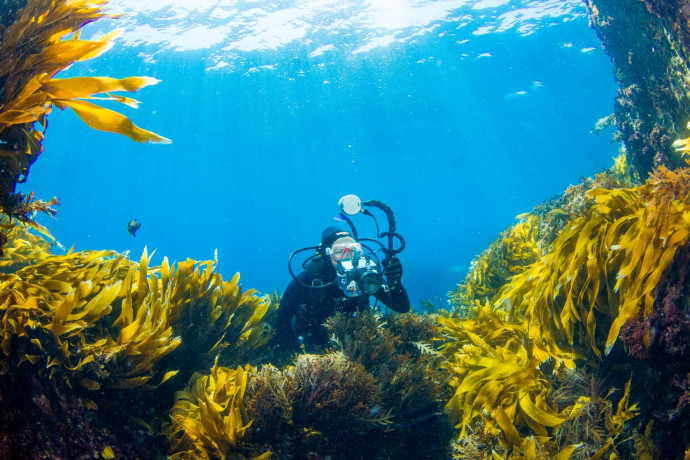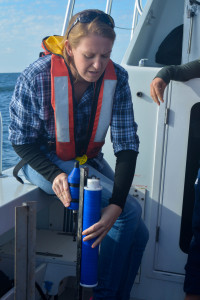Jenni Stanley

2019: Dr Jenni Stanley, University of Waikato, has been awarded a Rutherford Discovery Fellowship for research titled: ‘What does protection sound like? A modern approach to understanding New Zealand's underwater soundscapes and acoustic pressures’
Published 10 Whiringa-ā-nuku October 2019
Biography
Dr Jenni Stanley is returning to Aotearoa New Zealand from the USA to take up her Rutherford Discovery Fellowship at the University of Waikato. Dr Stanley was awarded a PhD in marine science from the University of Auckland in 2011. She then spent two years as a Research Fellow at the Institute of Marine Science. In 2015, Dr Stanley moved to the USA where she was a research scientist at NOAA, Northeast Fisheries Science Centre & Stellwagen Bank National Marine Sanctuary and then the Woods Hole Oceanographic Institution. Dr Stanley’s research focusses on underwater soundscapes and how natural and human-made sounds affect marine organisms. She is a research leader in the field of underwater acoustics. Jenni has secured a number of competitive external grants in the USA, and sat on many international expert panels.

Jenni demonstrates how to mount hydrophones to weighted stand for deployment underwater. Photo: Alison Soss, Gray’s Reef National Marine Sanctuary, NOAA (CC BY-SA 4.0)
Research Summary
The ocean covers more than 70% of the earth’s surface and drives much of its climate. It also provides human subsistence, economic resources, and recreational and cultural identity. Yet, in this vast space, so much is still unknown, including the extent and dynamics of biodiversity and how these factors shape the health of a given environment. Sounds can provide much of that knowledge. Underwater, sounds are a dynamic property of all ecosystems – from the biological sounds of animals communicating to the sounds of water and wind movement to human-made sounds. However, sound is not yet widely recognised for the information it holds, nor as a key indicator of the health of an ecosystem. There is also a distinct lack of data on the effects of ever-increasing levels of human-made sounds on marine systems.
Many countries have made statutory commitments to ensure that underwater sound pollution is at levels which do not harm marine ecosystems. However, a coordinated action to manage cumulative human-made sound levels is lacking, especially in Aotearoa New Zealand. In her Rutherford Discovery Fellowship, Dr Stanley aims to fill this gap by using a collection of acoustic and visual sampling platforms, novel machine learning techniques and sound exposure models that will produce comprehensive datasets. Initially, effort will be applied to areas with assigned marine protection, with emphasis on determining the ambient soundscapes and acoustic signatures of significant species. This will help identify key acoustic factors that reflect ecosystem health and biodiversity, and locations where human use will likely contribute to negative exposures. Developing key partnerships with both national and international organisations, and communities will be prioritised, in particular local hapū and iwi. Ultimately, this project aims to assess and effectively monitor Aotearoa New Zealand’s underwater soundscapes.
